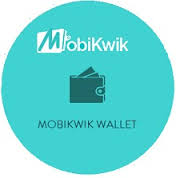Ever since money (in its current form) came into use, banks and other financial institutions and services have existed to cater to monetary exchanges, transactions and so on. Initially or even until the late 90s, banks required the physical presence of the person to transfer money from his holding account to the account of another person.
Enter Internet
With the advent of the Internet and related technologies, the landscape of money transfer and bank transactions underwent a rapid change. Automated Teller Machines, (ATMs) came into the picture, through which one could withdraw money without having to stand in a queue at the bank. The e-transfer or electronic fund transfer would further change the way transactions were made. Out came the credit cards and debit cards. People did not have to carry cash anymore when they went out to shop or eat. The development and rise of electronic payments and transactions saw an exponential growth and over time, everything became online.
The Virtual Age
Fast-forward to the current scenario, and applications such as MobiKwik have virtualised the concept of money transfer. With the virtual wallet service, the users need not go down to the bank time after time for every single transfer that they want to make. Not only is the transfer hassle-free, it is instant and secure as well. With the money in the virtual wallet, users can transfer money from anywhere across the country to any bank account of their choice. Besides transferring money, Customers can also use the application for Aircel online recharge and avail great offers such as the call rate plans, full talk time and many more.
The process is as simple as selecting the transfer money option, entering the details of the bank and the amount to be transferred, verifying the One Time Password (OTP) and with the press of a button, money is transferred almost instantaneously. In this age of fast internet, consumers the app also offers the Aircel 3G plansdata recharge so that you can stay connected to your friends and family.
Besides easing the number of processes involved in a monetary transaction, technological advancements are enabling financial institutions to be more efficient, increase productivity and keep accurate records. Furthermore, it is a great way for consumers to save and manage their own finances.



